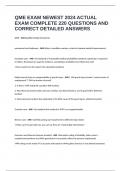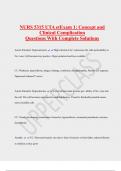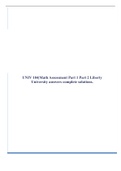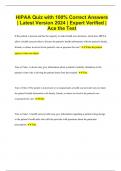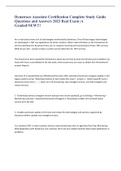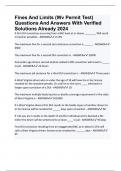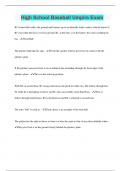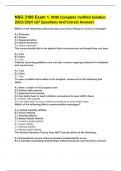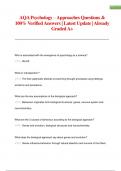Exam (elaborations)
QME EXAM NEWEST 2024 ACTUAL EXAM COMPLETE 220 QUESTIONS AND CORRECT DETAILED ANSWERS
- Course
- Institution
QME EXAM NEWEST 2024 ACTUAL EXAM COMPLETE 220 QUESTIONS AND CORRECT DETAILED ANSWERS QME EXAM NEWEST 2024 ACTUAL EXAM COMPLETE 220 QUESTIONS AND CORRECT DETAILED ANSWERS QME EXAM NEWEST 2024 ACTUAL EXAM COMPLETE 220 QUESTIONS AND CORRECT DETAILED ANSWERS
[Show more]
